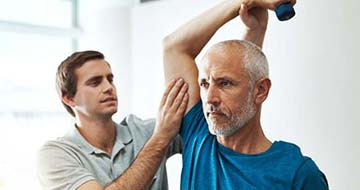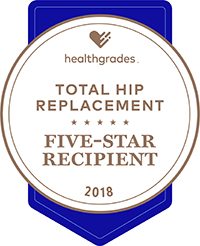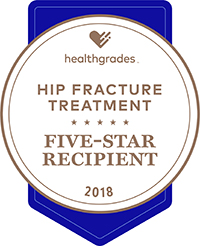Orthopedics
Delray Medical Center can help heal your shoulder injuries by giving you access to a large and experienced team of ortho...
Some joints are beyond rehabilitation. If you're moving in pain, learn about how joint replacement can get you back to d...
Learn about our minimally invasive Anterior Approach Total Hip Replacement – an alternative to traditional hip replaceme...
Pinecrest Rehabilitation Hospital’s Outpatient Physical Therapy Rehabilitation is committed to providing patients ...
Get information on evaluating foot or ankle pain and stiffness, treatment, and physical therapy offered through Delray's...
Whether you’ve dislocated your shoulder, torn a ligament, or are experiencing the pain and discomfort of tendoniti...
Orthopedic Services
Find an Orthopedic Specialist
7 Common Home Workout Injuries and How to Prevent Them
Working out at home has multiple advantages. It’s convenient, cost-efficient, you have access to the equipment you need all the time and it also can make a good bonding activity with your loved ones. However, workout injuries can happen anytime, even at home, especially when you’re lifting weights or doing a high-intensity routine with improper posture and form. Some people also tend to workout excessively at home which may tear up muscles and/or aggravate existing injuries or conditions such as joint or knee pain.
Before we discuss some ways to prevent experiencing injuries, let’s first take a look at the common home workout injuries below.
7 Common Home Workout Injuries
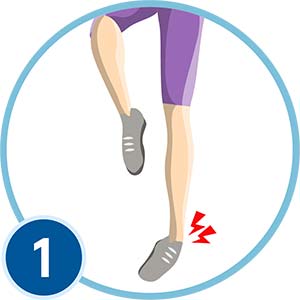 Sprains or injuries to ligaments due to accidental twists |
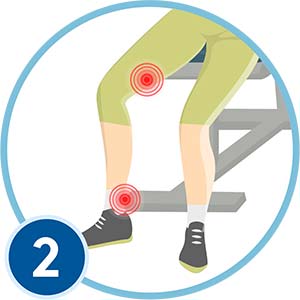 Muscle or tendon injuries from not warming up |
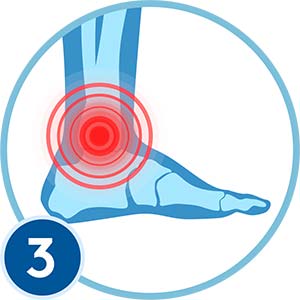 Tendinitis or inflammation of a tendon due to overuse |
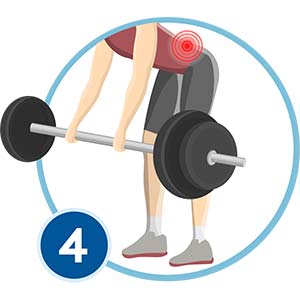 Lower back pain due to lifting with improper form |
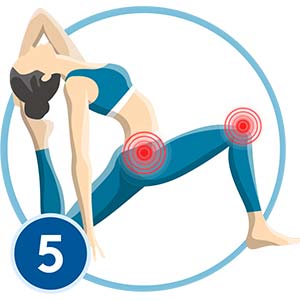 Hip or knee pain due to excessive workouts |
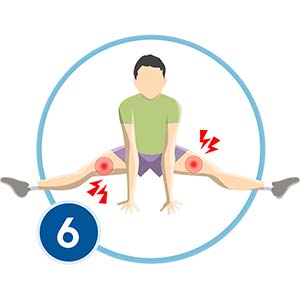 Hamstring pull caused by quick, unexpected movements |
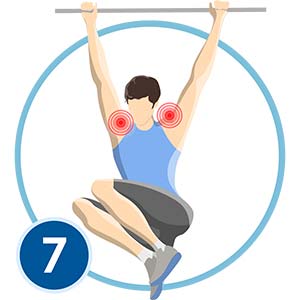 Shoulder impingement due to excessive overhead actions with bad form |
How to Prevent Home Workout Injuries
Here are some ways to prevent experiencing the common home workout injuries.
1. Warm up and cool down.
Stretching, brisk walking and/or jogging in place before working out can help prepare your muscles and your heart rate for your routine, prevent strain and avoid breathing problems. Doing these after workout can also help cool your body down and slowly help your heart rate get back to normal.
2. Practice proper form and posture.
Maintaining good form and posture can help you effectively exercise the right muscles as well as prevent joint, shoulder and back pain.
3. Wear a good pair of shoes with arch support.
Long workouts and multiple repetitions can put stress on your joints and feet, so be sure to wear a good pair of shoes to avoid any chance of inflammation or injury. If you prefer doing high-impact exercises, it would be best to invest in a pair of running shoes with good cushioning.
4. Use mats to prevent joint pain and slipping accidents.
It’s not advisable to work out on a carpet, hardwood, cement or even rugs and towels as they can lead to slipping accidents. The best choice is a thick exercise or yoga mat, especially when your workout incudes jumps, planks and other exercises that require you to lay down.
5. Don’t push yourself too hard.
Listening to your body is key. If you feel like you can’t take one more set, then stop and start cooling down after a few minutes. Don’t push yourself beyond your limit to avoid tendon inflammation, muscle tears, sprains and joint pain.
6. Let your body recover.
Your muscles require time to recover. Remember to get enough sleep, eat enough protein and schedule your workouts in a way that you can still rest, especially if you came from a sedentary lifestyle and started working out just recently.
Final Thoughts
If you experience any of these home workout injuries, please consult a doctor as soon as possible to prevent greater health risks in the future. For life-threatening emergencies such as fractures and heavy bleeding, please call 911. Stay safe!
Sources:
Harvard Health Publishing
Healthline
USA Today
AARP
Global News



